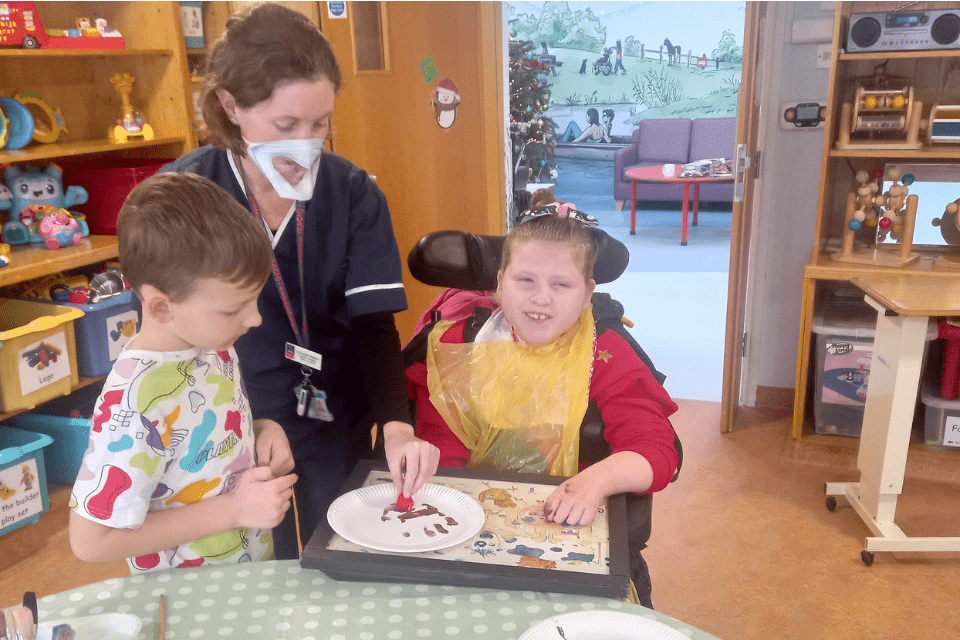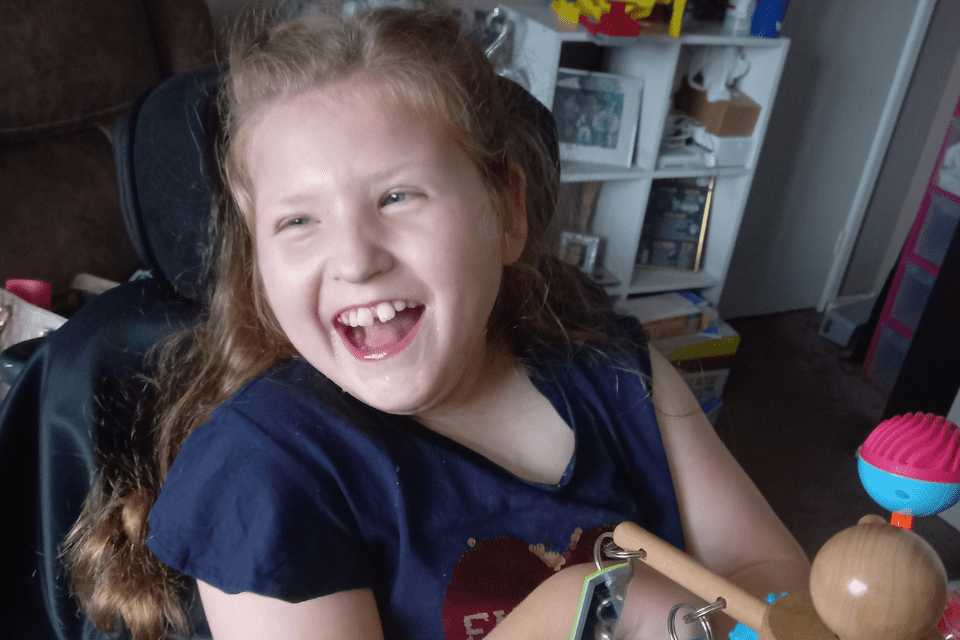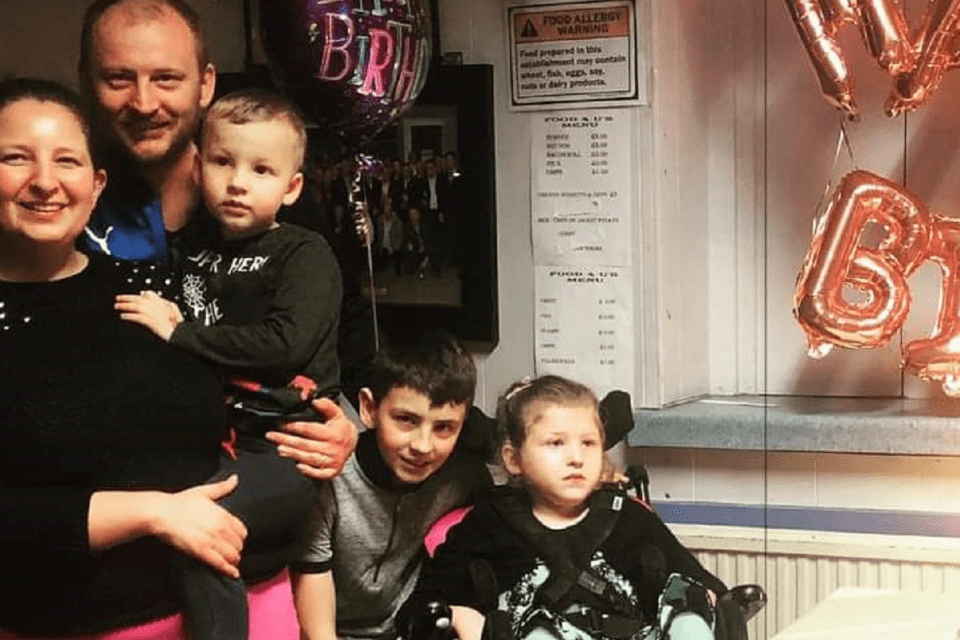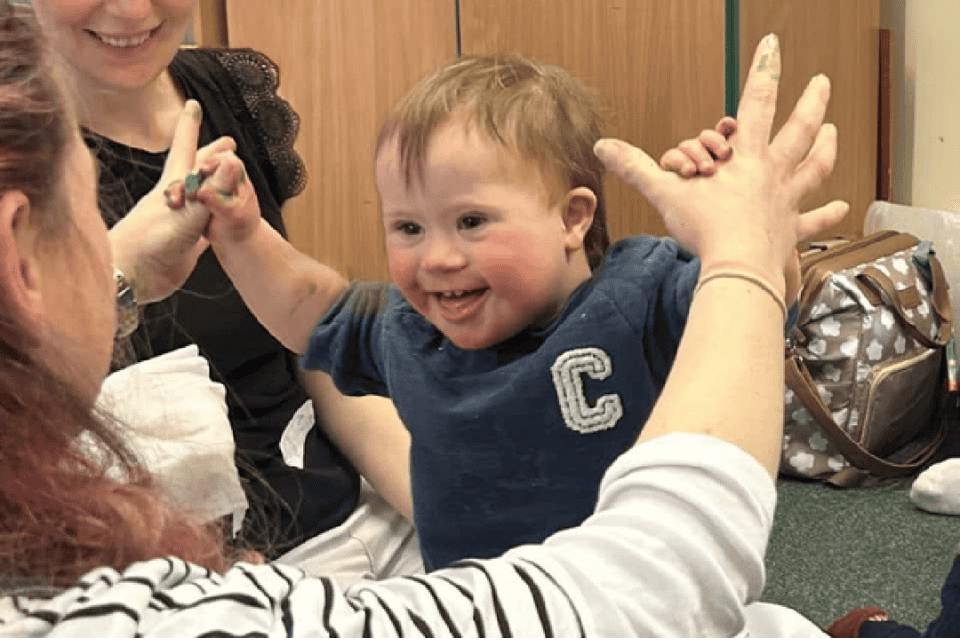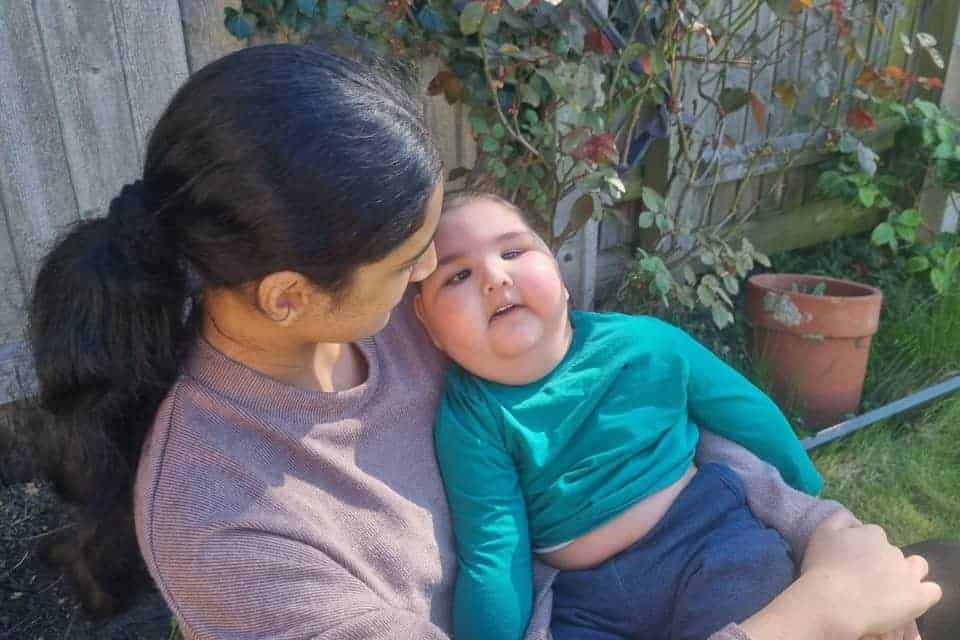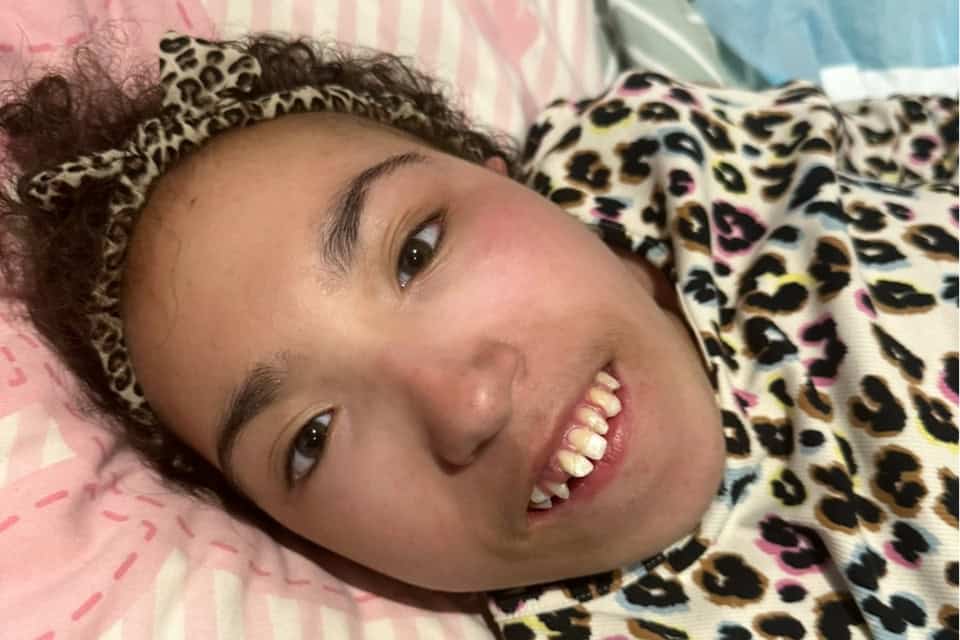Est. read time: 2-3 minutes.
Mum Lisa Ayton says East Anglia’s Children’s Hospices (EACH) has been an “absolute saviour” thanks to the care and support her family receive at Milton.
Daughter Abbie, 12, has a rare gene mutation which has created a number of other health complications, including epilepsy and hypertonia.
She is prone to chest infections and fed via percutaneous endoscopic gastrostomy, a procedure in which a flexible feeding tube is placed through the abdominal wall and into the stomach.
Abbie has been receiving care at the hospice since she was a year old.
“We weren’t aware of any problems when she was born but ended up in hospital when she was six months old, after her first seizure,” said Lisa, who, together with partner Adam, has two other children – Jake, 16, and Tyler, eight. Jake has autism while her youngest son has learning difficulties and ADHD.
“It was such a scary, torturous time. She spent more than a fortnight in intensive care and we were told she’d never come off her life-support machine.
“Thankfully, she defied the odds but it wasn’t until she was five that we were given a proper diagnosis.
“Abbie’s been receiving care at the hospice since she was one and it’s been an absolute saviour, for us as a family and me as a mum.
“Having three children with special needs is hard work and incredibly intense. There are times when I feel beyond tired. In fact, I’m completely exhausted.
“When Abbie has respite care, it gives me a chance to take a break, recharge my batteries and catch my breath. I feel I’ve got more energy when she comes home again and that’s such an invaluable feeling.
“Abbie loves her time at Milton. She enjoys doing arts and crafts, messy play and especially spending time in the sensory room.
“For me, it’s so nice knowing she’s safe and happy. It means I can relax.”
Abbie has lots of seizures but has been boosted since starting on a ketogenic diet – a dietary therapy used mainly to treat hard-to-control epilepsy in children. It forces the body to burn fats rather than carbohydrates.
“Starting Abbie on the diet meant we were also able to wean her off her epilepsy drugs – all of which made her very sleepy and didn’t really stop the seizures,” added Lisa.
“It’s certainly helped because although she still has occasional seizures, she’s much more alert and appears happier. She certainly laughs more.
“Abbie’s such a lovely girl. She’s great fun and very special to be around. She’s non-verbal but has her own way of communicating, including lots of sounds, and her personality shines through.
“She’s very aware of everything going on around her and makes lots of great facial expressions, especially when she’s happy and excited about something.
“I’m very proud of her and she melts my heart.”
